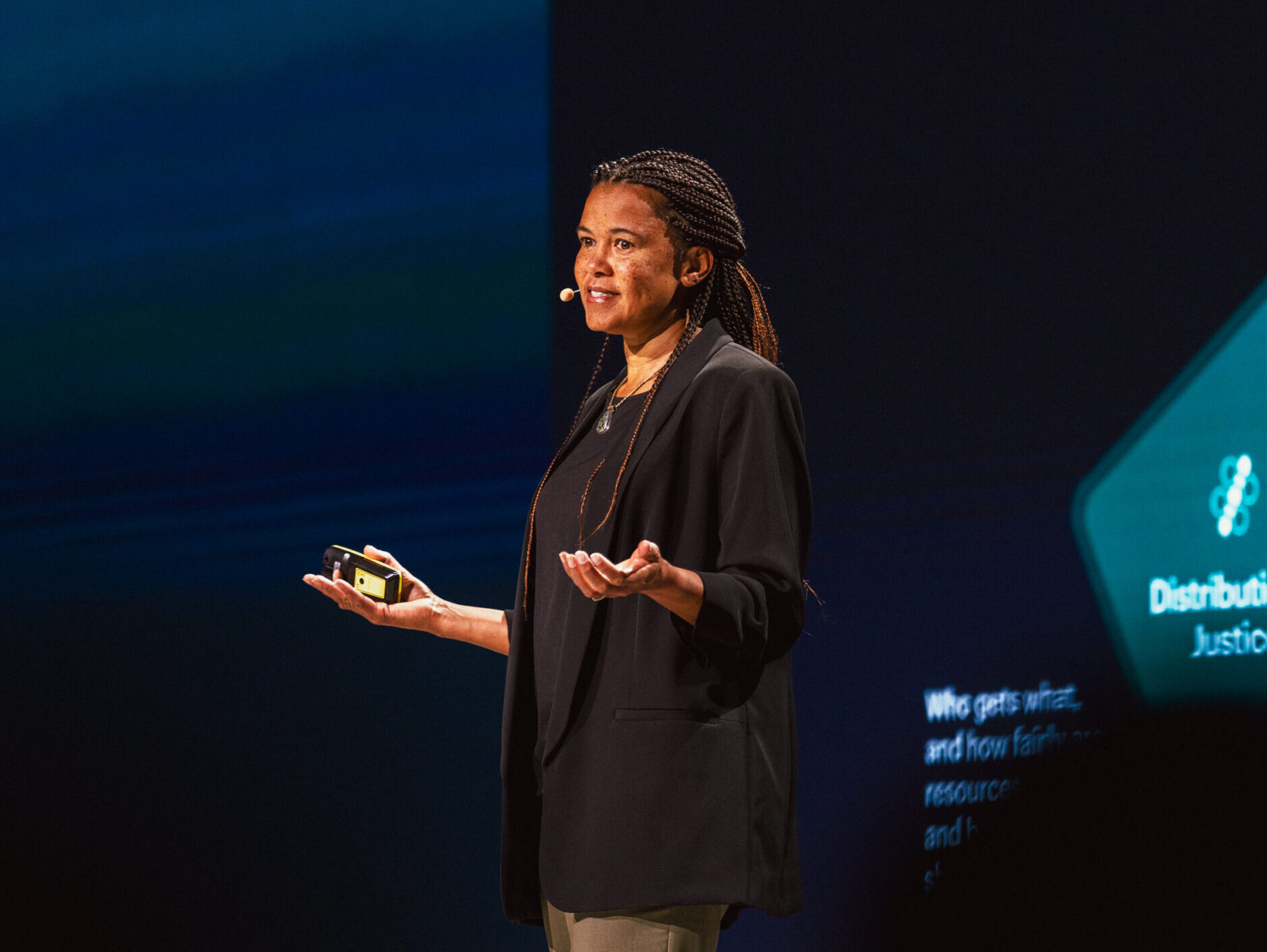Outcomes from the June 2024 conference, ‘The Power of Public Food Procurement’, organized by the Milan Urban Food Policy Pact, Municipality of Copenhagen and Roskilde University, with the support of EAT.
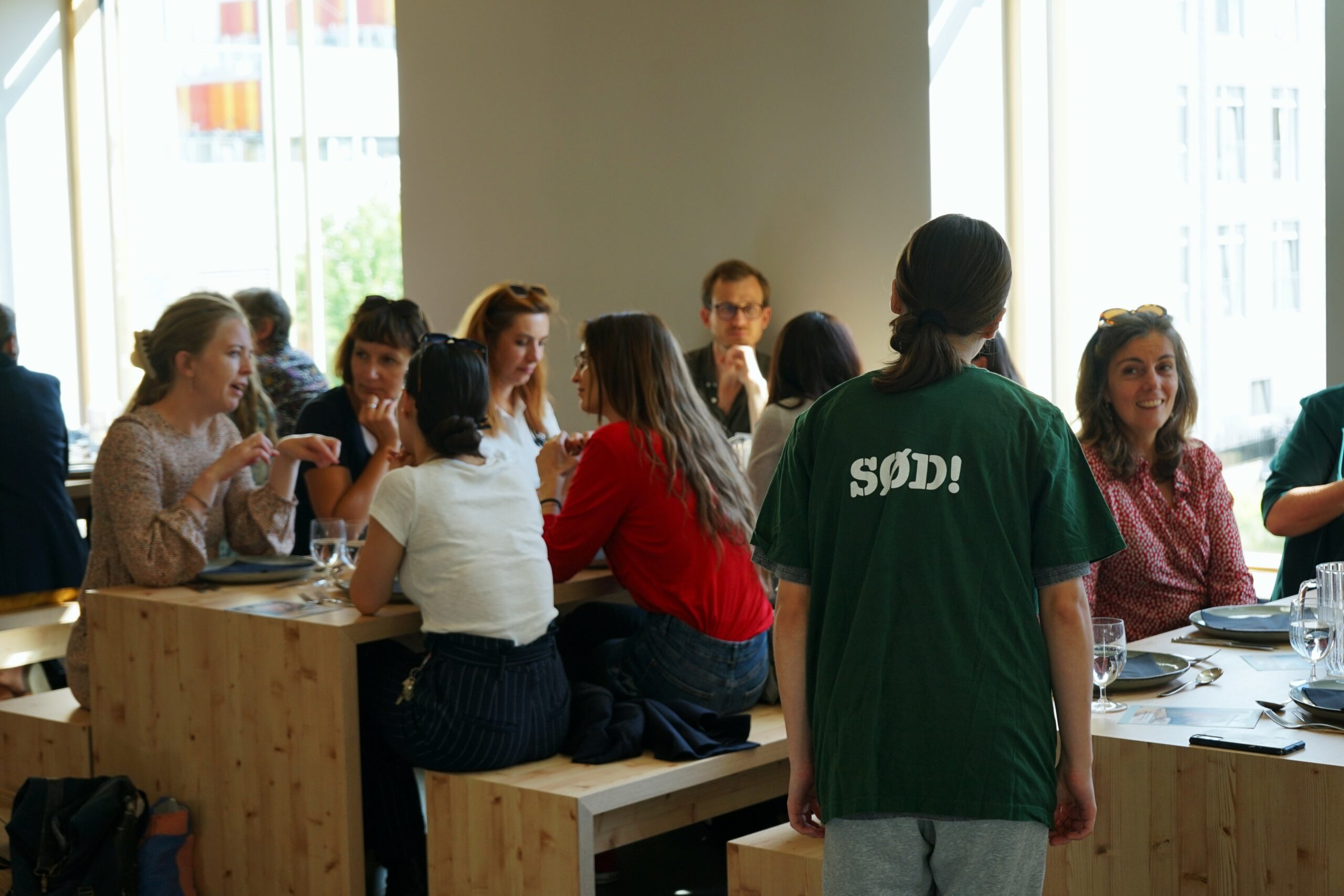
On the 17 and 18 June 2024, the Milan Urban Food Policy Pact (MUFPP), the Municipality of Copenhagen, and Roskilde University with the support of EAT, organized the conference ‘The Power of Public Food Procurement’, within the framework of the Horizon 2020 Food Trails project and the Cities Feeding the Future Initiative.
The conference was attended by between 80-110 participants, including representatives from WHO, FAO, the European Commission, the Vice Mayors of Paris, Milan and Copenhagen, and MUFPP.
This inspiring two-day event explored the pivotal role of cities in shaping sustainable food systems, along with the impact that every meal served has on the well-being, education, and future of our children (full event agenda here). Copenhagen, being a front-runner in shaping its public procurement for school meals to increase their sustainability, shared its experiences and innovative initiatives. Those insights were reinforced by real life experiences and field visits, such as the Conference dinner in one of Copenhagen’s “food schools” where the preparation of healthy school meals is a part of the curriculum, with teams of students involved in turn.
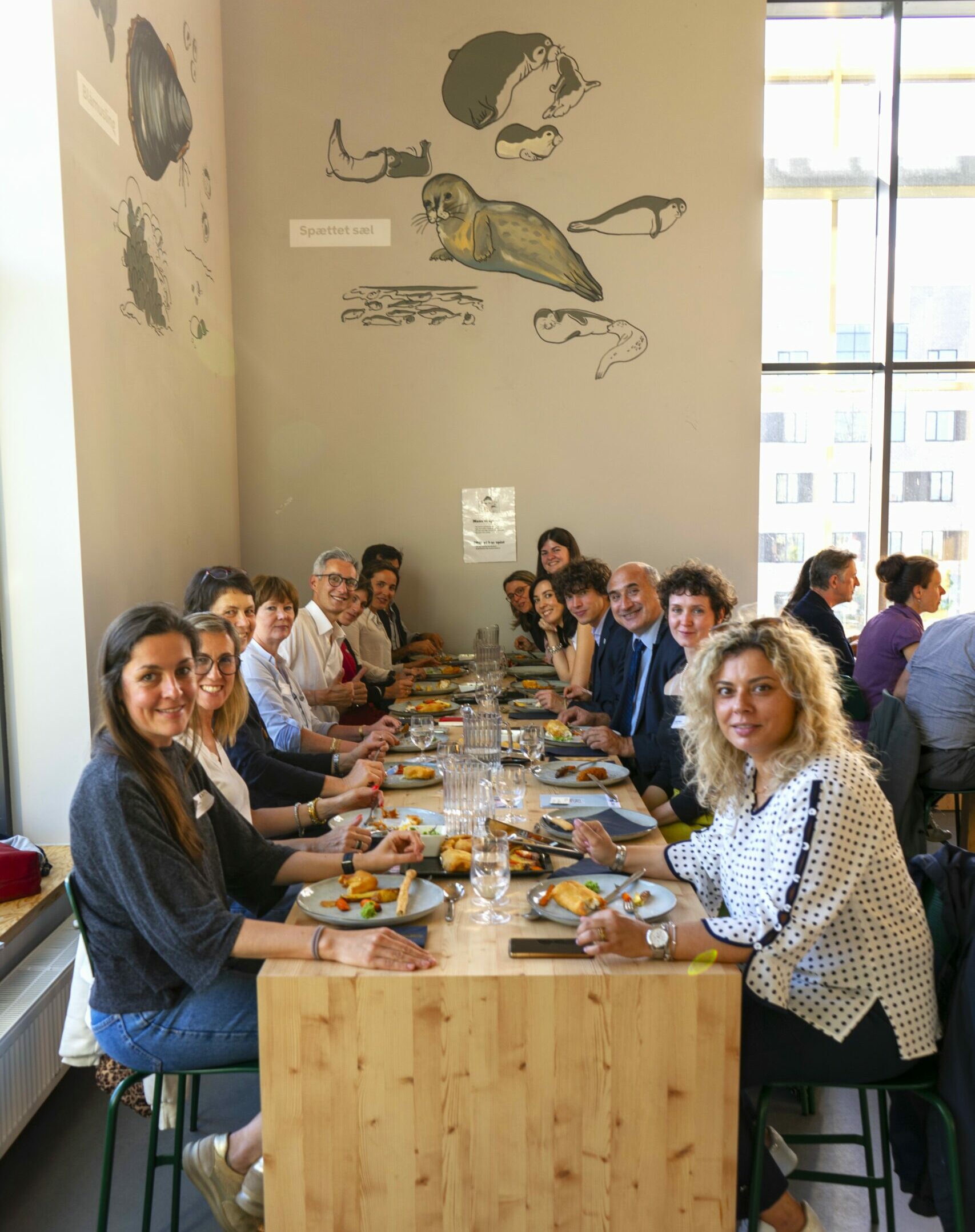
Participants enjoying a meal prepared with students at one of Copenhagen’s “food schools”
Day 1 Summary – The power of food policy governance of cities:
EAT co-organized the first day of the event, 17 June 2024, summarized below. Caterina Ruggeri Laderchi, Director of the Food System Economics Commission (FSEC), chaired the first day.
Tim Lang, Emeritus Professor of Food Policy and trailblazer in the field, provided a scintillating keynote address focused on the importance of building resilience in our food system choices. He was followed by Andrea Magarini, Food Policy Director of the City of Milan and chair of the Eurocity Working Group on food and by Ida Auken, Member of the Danish Parliament. Their presentations on European policies on school meals and the Danish plans to transition the food system towards more plant-based diets, respectively, were followed by a spirited panel with great engagement from the audience.
The rest of the morning offered opportunities to learn of the results achieved by 4 of the 11 Food Trails cities in developing food policies and testing different solutions as part of their Living Labs.
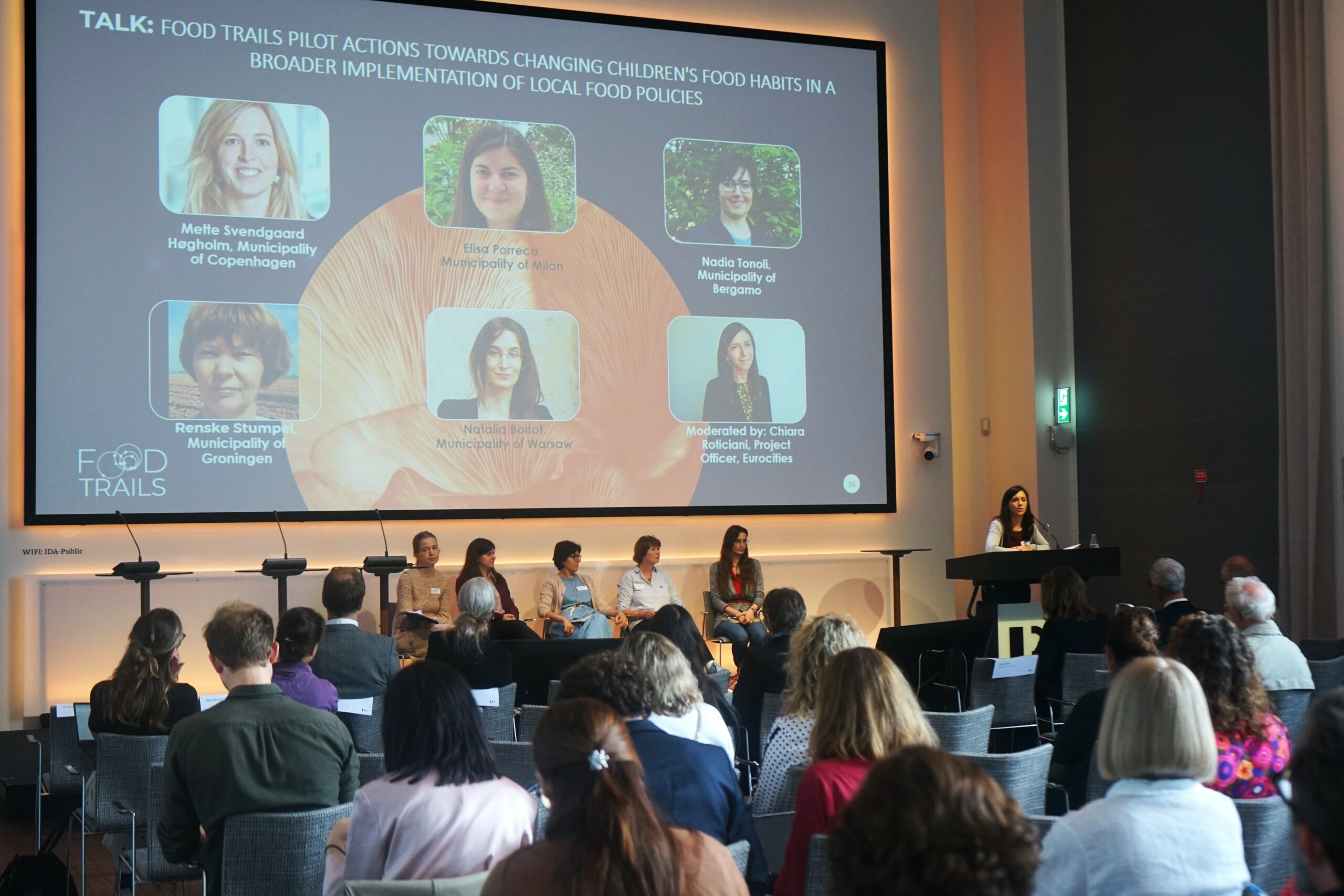
Panel with five Food Trails cities on pilot actions towards changing child’s food habits in a broader implementation of local food policies
The afternoon session included a knowledge-sharing workshop with 5 breakout groups, after a short plenary introduction to the discussions. The introduction provided key insights from the FSEC final report, as a background to the discussions, and highlighted the relevance of the FSEC policy framework to the structure of the discussions themselves.
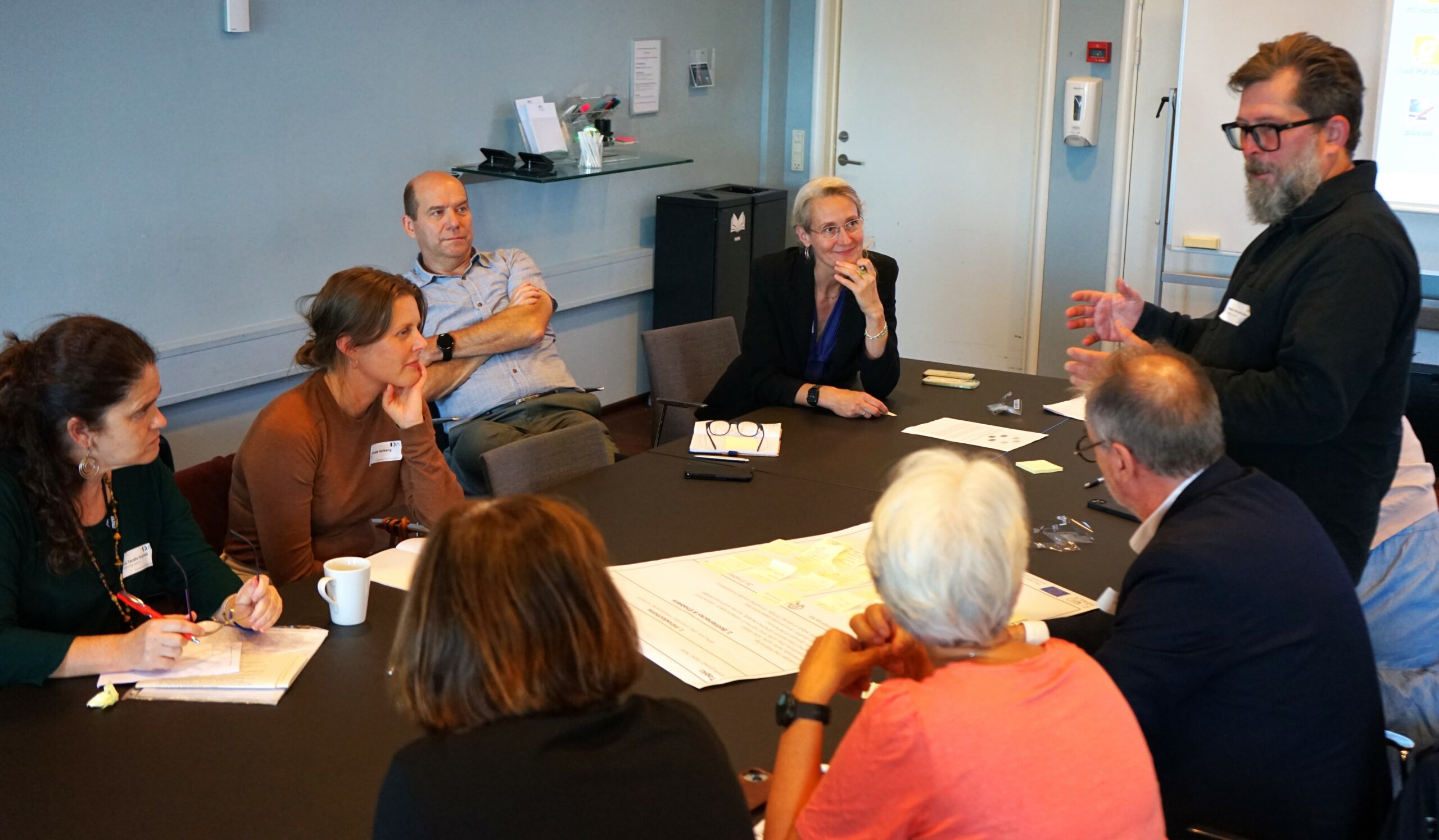
Breakout group from knowledge-sharing workshop, facilitated by EAT and Roskilde University
The participants shared contexts, challenges and potentials for mutual inspiration on five topics:
- Political commitment towards food system transformation – how to reach decision makers’ agenda
- Sustainable food procurement – reversed food chain practices, with cities playing active role in food production and procurement
- Citizen engagement – how to organize participatory processes in food system transition, for citizens and other vulnerable groups
- Competence building – which skills and competences are in demand for a sustainable food chain
- Circular economy – how to reduce food waste in public food procurement
The very active group discussions provided useful insights on the bottlenecks and enablers that policy officers and urban practitioners face in transforming local food systems, to continue the policy engagement around the EU Farm to Fork policy and ongoing efforts towards reforming the Common Agriculture Policy.
Some of the elements that were mentioned by different groups included:
- The need for more participatory governance and collaboration, such as through food councils. Food councils can be means of bringing together different voices, fostering sharing of experiences and forging shared perspectives
- A pragmatic focus on concrete regulatory changes such as changes in the norms on use of leftover food by restaurants
- And the need to develop new metrics for capturing the different impacts of foods and food related actions, but also to share knowledge and create opportunities for benchmarking and spur change on the ground.
An overview of the main findings and takeaways by group is below:
1. Political commitment:
The key bottlenecks to political commitment towards food system transformation at the individual level have to do with lack of knowledge and the very personal nature of food choices; at the more systemic level those factors connect with the lack of trust in policy making on the one hand and the difficulty to bypass politicians who do not act. Building political alliances is seen as a key strategy to generate political commitment, as is the evidence that action has good impacts.
The concrete actions considered focus around:
- accountability – establishing food councils for stakeholders to audit what politicians and cities do
- framing issues – make food an item on the political agenda, rather than an accessory point; making tenders more visible to the public. Food festivals were also identified as a concrete way for making food more visible in consumers’ and policy makers’ perceptions.
- enabling joint action – forming networks including with more social media, peer to peer learning and benchmarking between cities; considering the incentives for those who stand to lose from change; and preparing toolkits of food policies for cities to adopt.
2. Sustainable food procurement:
As participants were already practitioners of sustainable food procurement, their analysis focused mostly on how to enhance the work that is already happening. A central theme emerged around awareness: building awareness around the tools used and the reasons for using them, fostering political awareness and creating synergies between actions at different levels. In addition, the need to map the stakeholders involved in the process and seeking to understand their constraints was highlighted.
Some immediate priorities for action were also identified, including:
- Developing food literacy through public procurement, providing opportunities to showcase how healthy food can be also good to eat and building capacity on how to do so.
- Framing the narrative on how food is discussed also through how food is dealt with in practice in city policies
- Creating a supportive legislative framework
3. Citizen engagement:
Two main themes emerged across the suggested actions from this group on organizing participatory processes in food system transition:
- First was the need for more participatory processes, including food councils.
- Second was the need for better communication, including between governments and different stakeholders, between producers and consumers. Engaging with schools (such as Copenhagen “potato kit”) was identified as an important way to address the gap between producers and consumers. The use of communication professionals was also recommended. The use of communication professionals was also recommended.
- Finally, Groningen’s ambition to create food hubs at the neighbourhood level to facilitate local learning around food was also presented as an example.
4. Competence building:
This breakout group tackled the broad spectrum of knowledge required for sustainable food procurement to play its full role as a force for the food system transformation. Their key suggestions included:
- Curriculum development focusing on food in terms of where it comes from and its health and environmental impacts. Things are happening in this space, but it is important to offer teachers tools that can be implemented.
- Changing the framing of how action on food is seen – politicians often react to economic arguments, but those typically ignore other important aspects.
- Breaking the silos that characterize action in different areas of food systems.
- Creating accountability mechanisms at the local level based on regular reporting.
- Specific actions at the school level included: the development of tasty menus, developing action tailored to what is and can be implemented in schools, introducing weekly fun activities through which children can learn about food.
5. Circular economy:
Bottlenecks to the development of a circular economy in relation to school procurement were identified in terms of regulations around leftover food; poor communication between food professionals in school, public institutions and the regulators; the difficulties of measuring food waste and therefore track progress in reducing it.
Opportunities identified to strengthen the circular elements of school procurement included increasing the use of seasonal produce to reduce waste, improving communication about circularity, and sharing best practices on how to treat food when it reaches public kitchens.
Practical solutions that were identified involve:
- Education requirements in tenders for both teachers and chefs in preparing and presenting food in a way that children appreciate, so that they learn about healthy foods.
- Cooperation requirements across different supply chain actors, to bolster circularity.
The key actions coming out of the breakout groups were shared in the opening of Day 2 of the conference, which focused on political discussions on the role of cities in public food procurement, and workshops sharing practical solutions and knowledge around collaboration and innovation.
Public food procurement is recognized as a strategic tool in steering the food system towards sustainability and encouraging healthier eating habits. To learn more, read this in-depth article on the transformative potential of public food procurement in supporting a sustainable food system and healthy planet.
For further details on the event, a full summary from the Conference will be made available on the project website: foodtrails.milanurbanfoodpolicypact.org.
About Food Trails:
Food Trails is a four-year EU-funded Horizon 2020 project, bringing together a consortium of 19 European partners, including 11 cities, 3 universities and 5 organizations. The project has enabled cities to reimagine, develop and implement sustainable, healthy and inclusive local food policies.
For more information, visit: https://eatforum.org/initiatives/cities/food-trails
 The Food Trails project has received funding from the European Union’s Horizon 2020 Research and Innovation programme, under grant agreement n. 101000812.
The Food Trails project has received funding from the European Union’s Horizon 2020 Research and Innovation programme, under grant agreement n. 101000812.
Remaining one step
ahead
of the curve.
Our Cultures, Our Meals: Cooking for Planetary Health
Cooking for Planetary Health brings the 2025 EAT-Lancet Report to life through food and culture, showcasing the plant-rich traditions of the Mediterranean and Asia.
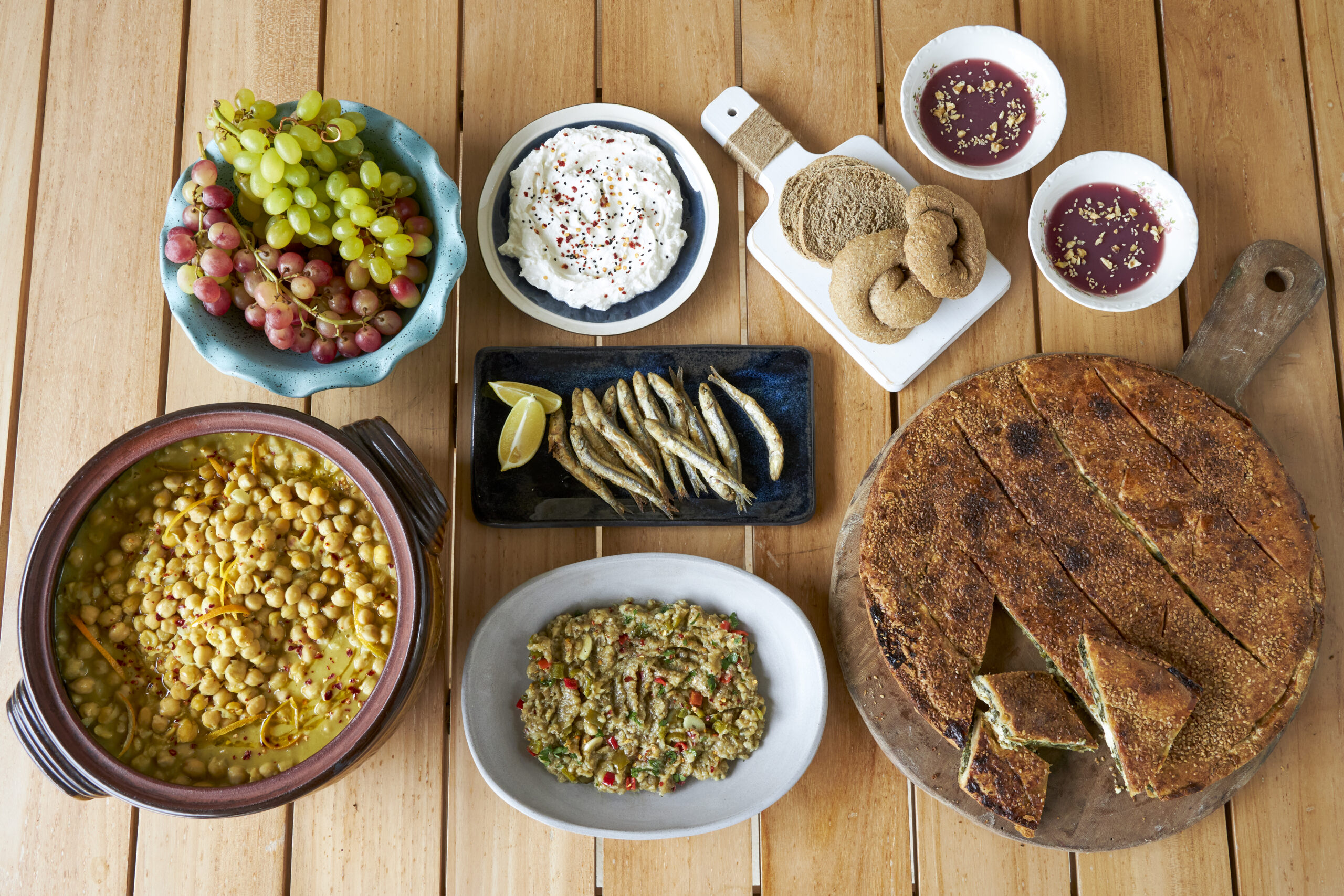
The 2025 EAT-Lancet Commission Livestream
The official launch featured presentations of the Commission’s key findings, perspectives from leading scientific and policy voices, and a global dialogue on how to translate science into action.
